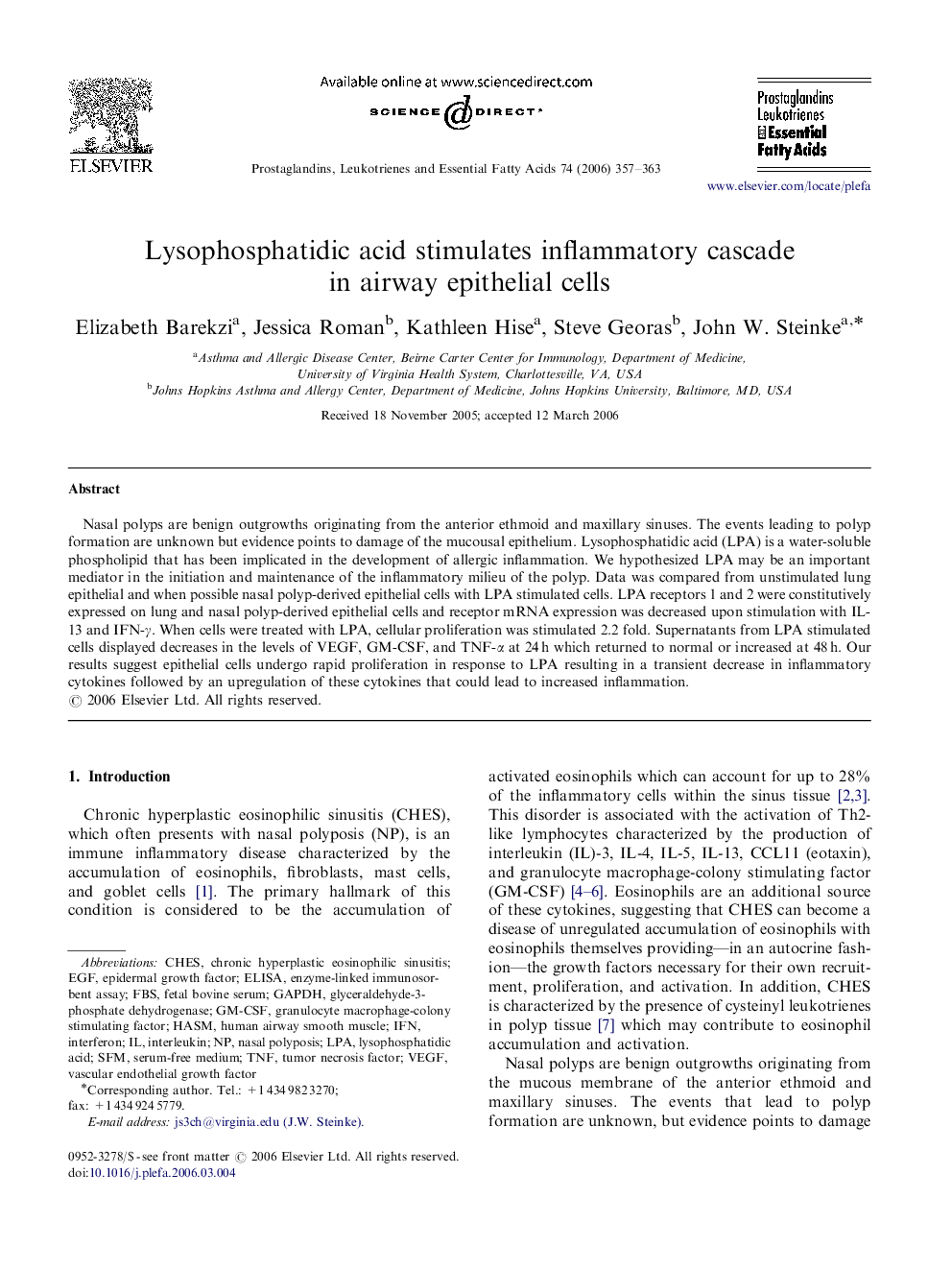| Article ID | Journal | Published Year | Pages | File Type |
|---|---|---|---|---|
| 2778292 | Prostaglandins, Leukotrienes and Essential Fatty Acids (PLEFA) | 2006 | 7 Pages |
Abstract
Nasal polyps are benign outgrowths originating from the anterior ethmoid and maxillary sinuses. The events leading to polyp formation are unknown but evidence points to damage of the mucousal epithelium. Lysophosphatidic acid (LPA) is a water-soluble phospholipid that has been implicated in the development of allergic inflammation. We hypothesized LPA may be an important mediator in the initiation and maintenance of the inflammatory milieu of the polyp. Data was compared from unstimulated lung epithelial and when possible nasal polyp-derived epithelial cells with LPA stimulated cells. LPA receptors 1 and 2 were constitutively expressed on lung and nasal polyp-derived epithelial cells and receptor mRNA expression was decreased upon stimulation with IL-13 and IFN-γ. When cells were treated with LPA, cellular proliferation was stimulated 2.2 fold. Supernatants from LPA stimulated cells displayed decreases in the levels of VEGF, GM-CSF, and TNF-α at 24 h which returned to normal or increased at 48 h. Our results suggest epithelial cells undergo rapid proliferation in response to LPA resulting in a transient decrease in inflammatory cytokines followed by an upregulation of these cytokines that could lead to increased inflammation.
Keywords
EGFTNFHASMCHESLPAGM-CSFSfMGAPDHFBSlysophosphatidic acidinterferonIFNinterleukinELISAEnzyme-linked immunosorbent assayfetal bovine serumChronic hyperplastic eosinophilic sinusitisepidermal growth factorHuman airway smooth muscleVascular endothelial growth factorVascular Endothelial Growth Factor (VEGF)tumor necrosis factorgranulocyte macrophage-colony stimulating factorSerum-free mediumNasal polyposisglyceraldehyde-3-phosphate dehydrogenase
Related Topics
Life Sciences
Biochemistry, Genetics and Molecular Biology
Clinical Biochemistry
Authors
Elizabeth Barekzi, Jessica Roman, Kathleen Hise, Steve Georas, John W. Steinke,
